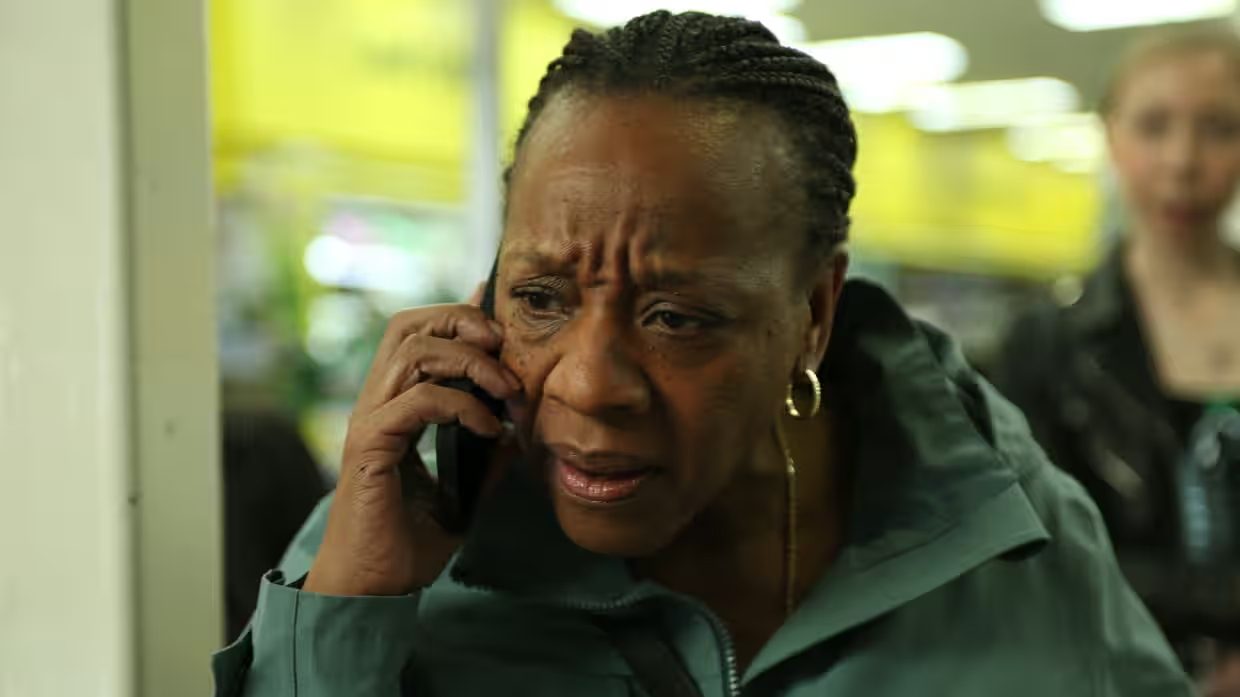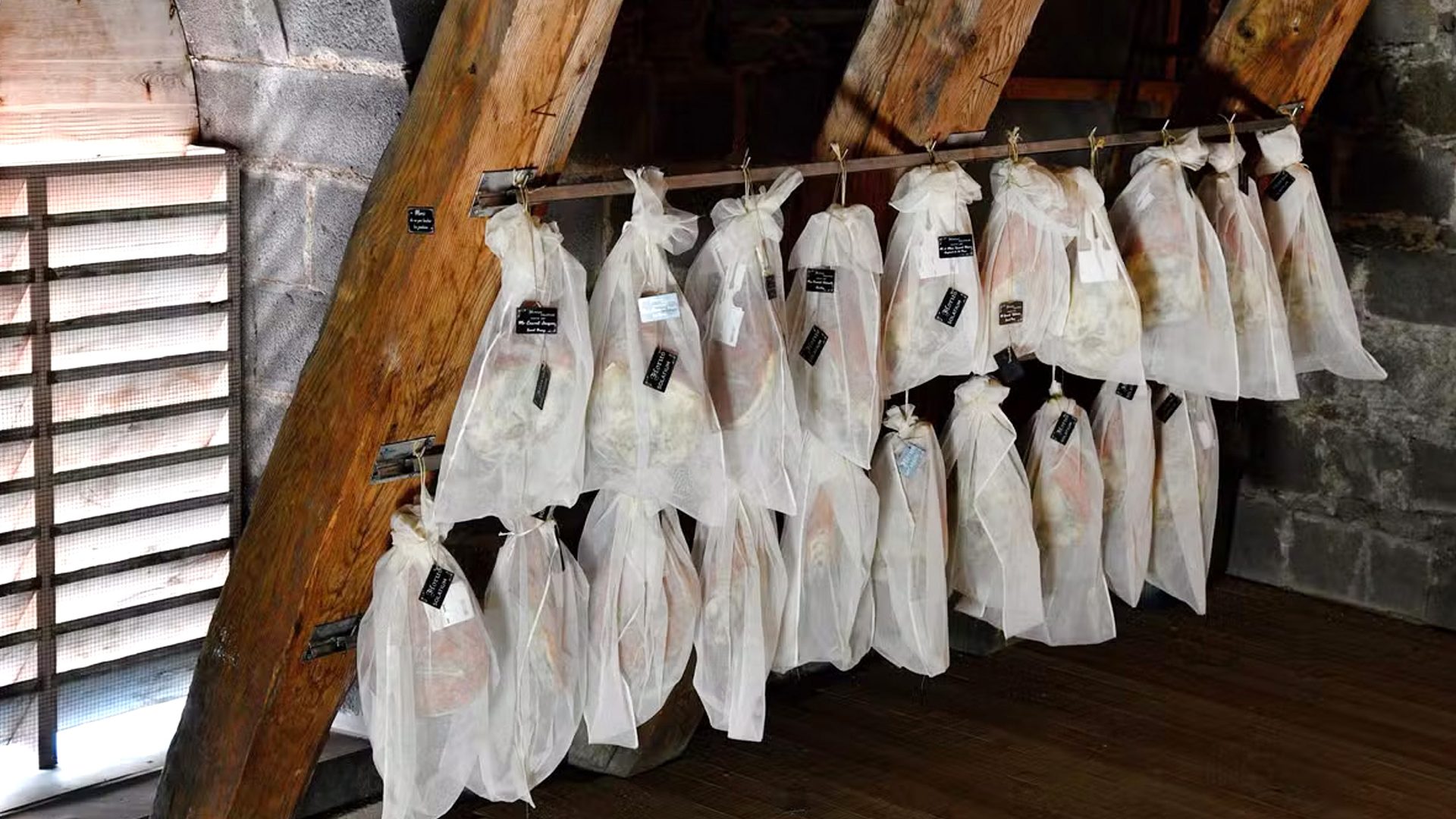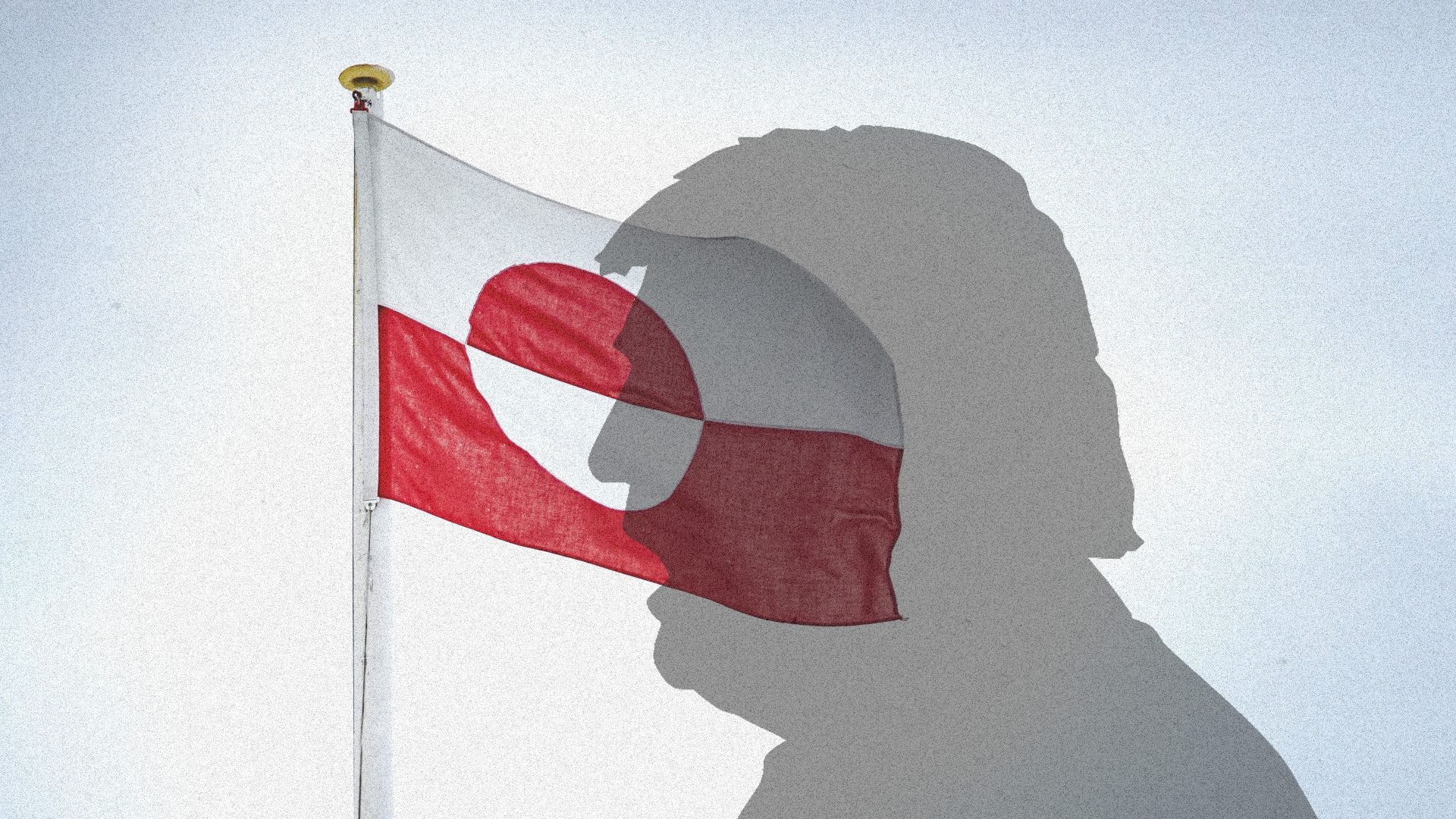Hard Truths (selected cinemas)
It is nothing short of a scandal that Marianne Jean-Baptiste has been omitted from this year’s Oscar nominations for best actress. In Mike Leigh’s 16th film, her performance as Pansy Deacon, a middle-aged woman in the grip of an all-consuming sadness that manifests itself as fear and fury, is quite exceptional, the turbulent heart of an exquisitely observed drama.
For reasons that are never fully explained – but may be connected to her relationship with her late mother Pearl – Pansy is both terrified and outraged by everything and everyone. “What’s a baby got pockets for?” she asks. “What’s it gonna keep in its pocket, a knife?” The supermarket cashier, her GP, her dentist, a shop assistant in a furniture store, a man in the carpark, a fox in the garden: each is an intolerable provocation. Even charity workers are “cheerful, grinning people – I can’t stand them!”
Her flights of invective are both comic and tragic: an enraged stream of consciousness which, we intuit, is a defence mechanism to conceal a terrible loneliness.
Paralysed and silenced by this unrelenting behaviour, her plumber husband Curtley (David Webber) and 22-year-old son Moses (Tuwaine Barrett) are shuffling ghosts in the house that she keeps clean with obsessive compulsion.
In sharp contrast, Pansy’s sister Chantelle (Michele Austin, also excellent) relishes life, and loves both her work in a hair salon and looking after her two adult daughters Aleisha (Sophia Brown) and Kayla (Ani Nelson). The rumbustious fun at their flat is the diametric opposite of the funereal atmosphere in Pansy’s home.
“Why don’t you enjoy life?” Chantelle asks her sister. “I don’t know,” replies Pansy. “They all hate me.” “I love you,” Chantelle replies. “I don’t understand you, but I love you”.
Aged 81, Leigh now has a body of work to rival any living director’s, including such classics as Bleak Moments (1971), Meantime (1983), Naked (1993), Secrets and Lies (1996) in which Jean-Baptiste played the gentle optometrist Hortense Cumberbatch; and Vera Drake (2004). Yet I fear for film making of the sort that he has championed for more than 50 years: intimate movies that do not engage performatively with fashionable social issues or confect thrills, but concern themselves unapologetically with the dramas of day-to-day life.
It has been Leigh’s genius to show, time and again, that those dramas are every bit as profound and painful as any portrayed in epic IMAX movies. Though Hard Truths was greeted with huge acclaim at Toronto last year, it was mysteriously turned down by both Cannes and Venice. For all his achievements, the director is finding it increasingly hard to secure funding for his projects. The streaming platforms are not interested. But a world without movies of this sort would be a poorer place.
The richness, detail and honesty of his latest film is an artistic master class in what cinema can do. It dares to suggest that there are no pat solutions for whatever it is that afflicts Pansy, that there are rarely tidy narrative endings in life: which is, of course, the hardest truth of all.
Presence (selected cinemas)
Like Danny Boyle, Steven Soderbergh is a director who loves to explore as many genres as he can. Here, he offers a satisfying variation on the conventional paranormal thriller by filming the story entirely from the ghost’s point of view.
Lucy Liu is Rebecca Payne, a driven career woman, whose family life is dominated by her attention to her golden-boy son Tyler (Eddy Maday). She wants him to move to a school where his talent as a swimmer will be nurtured, so she and her generally passive husband Chris (Chris Sullivan) buy a house in an upscale suburban area.
Their daughter Chloe (Callina Liang) lives in the shadow of her brother and is experiencing deep anxiety following the death of her best friend Nadia. Another girl, we learn, has also died, both tragedies lazily ascribed to drug overdoses.
David Koepp’s screenplay is crisp and tantalises with detail rather than laborious exposition. Through spectral eyes, we catch glimpses of the family’s tensions and fragmentations: hints that Rebecca drinks too much and is engaged in some form of white-collar criminality; that Chris is at his wit’s end. Meanwhile, Chloe develops a crush on Tyler’s friend Ryan (West Mulholland), who seems to reciprocate.
To say more about Presence would be to spoil its twists and turns. The distance kept by the ghost (most of the time) communicates its own solitude as well as the quiet desperation that grips the family members. This house is indeed haunted, and not only by a supernatural presence.
Saturday Night (selected cinemas)
October 11, 1975: a 30-year-old producer, Lorne Michaels (Gabriel LaBelle), scurries around Studio 8H at 30 Rockefeller Plaza in New York, desperately trying to appear calm as he gets ready for the premiere episode of his daring new comedy show, NBC’s Saturday Night (it did not become Saturday Night Live until 1977).
For the network’s top brass, notably David Tebet (a terrific cameo by Willem Dafoe), this avant-garde project is no more than an experiment, a potential alternative to weekend reruns of The Tonight Show Starring Johnny Carson. But for Michaels and his co-writer and wife, Rosie Shuster (Rachel Sennott), the show is the front line of the revolution – introducing America to a new generation of audacious comic talent.
Which would be great, if only John Belushi (Matt Wood) would sign his contract, if Billy Crystal (Nicholas Podany) would stop insisting that he needs more time for his set, if George Carlin (Matthew Rhys) could be kept away from the coke, if the lighting rig hadn’t fallen on the stage during rehearsal, if anyone could remember why they asked for a llama.
As if in a Robert Altman movie, Jason Reitman’s camera follows Michaels through the bedlam. Everywhere he goes, there are future giants of American popular culture: Chevy Chase (Cory Michael Smith), Gilda Radner (Ella Hunt), Dan Aykroyd (Dylan O’Brien), Andy Kaufman and Jim Henson (both parts played by Nicholas Braun). But – as airtime draws perilously close – they look like a fun-loving gang of youthful egoists who couldn’t land a “knock knock” joke, much less change television forever.
Therein lies the dramatic irony that makes Saturday Night entertaining: we, the audience, know what happens next. Now celebrating its fiftieth anniversary, SNL is part of American heritage, each episode and host performance still reviewed in the mainstream media (check out Dave Chappelle’s magnificent monologue on January 18). But, in 2025, the show is an institution in decline rather than a subversive force, supplanted as the finishing school for comic stardom by YouTube and podcasts. Reitman’s movie is a charming origins story, and a reminder that most establishments have their distant roots in revolution.
The Years (Harold Pinter Theatre, London, until April 19)
A richly deserved West End transfer for Eline Arbo’s adaptation of Annie Ernaux’s most famous book (first published in 2008 as Les Années), after its triumphant run at the Almeida last year. Deborah Findlay, Gina McKee, Romola Garai, Anjli Mohindra and Harmony Rose-Bremner return to play the Nobel Prize winner at various stages of her life, and all are excellent.
Though the play addresses many serious issues – feminism, sexual freedom, geopolitics, imperialism, Vietnam, AIDS, the far Right – the five actors are an antic, often hilarious troupe. Their interactions dramatise Ernaux’s approach to memory and identity as an endless dialogue with one’s former selves (she has described herself as “the ethnographer of my own life”). Through sex and intimacy, she says, we can escape time – if only briefly.
A brisk two-hour journey from 1941 to 2006, following Annie from childhood to life as a grandmother, The Years is as entertaining as it is compelling. It does not flinch from controversy, either. The gruelling scene in which Garai’s Annie undergoes an illegal kitchen table abortion has already become notorious, prompting members of the audience to walk out. On the night I saw the play, the production had to be stopped briefly as someone in the circle was given “assistance”.
Garai does indeed have stage blood on her arms and legs and, as a first-rank actor, communicates Annie’s suffering with compassion and power. But the sequence is in no way gratuitous, admirably refusing to take refuge in euphemism or sugar-coating as it recalls the battle fought by Ernaux’s generation for basic reproductive rights.
Traumatic, touching and absorbing, The Years is a must-see.
The Hohenzollerns and the Nazis – Stephan Malinowski (Allen Lane)
What connects the Second Reich to the Third? For almost half a century, from 1871 to 1918, the Hohenzollerns reigned over Germany – until Kaiser Wilhelm II’s flight to Doorn, in the Netherlands, shortly before the Armistice.
Though the dynasty has since tried to minimise the extent of its collaboration with the Nazis, Malinowksi, a professor at Edinburgh University, demonstrates persuasively that former crown prince Willhelm, in particular, sought to ingratiate himself with the Nazis and maximise the chances of a return to the imperial throne – endorsing Hitler in his run-off with Hindenburg in April 1932 (Hitler lost that time). He was also a busy champion of the Nazi leader on the international stage. Another Hohenzollern, August Willhelm, was a member of the SA.
Malinowski’s magnificent book is that rarest of creatures: an impeccable work of scholarship that is also accessible to the general reader. It sheds new light on a uniquely dark chapter – and is a terrible warning against the folly of restorationist projects of all kinds.
And finally
There is no British movie house quite like the Prince Charles Cinema, a cultural landmark just off Leicester Square. In addition to current releases, it shows rep films, cult movies and arthouse fare – and hosts terrific seasons and all-night movie marathons. Now, its future is under threat because of an absurdly unjust break clause in its lease, which means that its landlord could shut it down with only six months’ notice. As more and more independent movie houses close their doors, this would be a true cultural outrage.
Please sign the petition.




